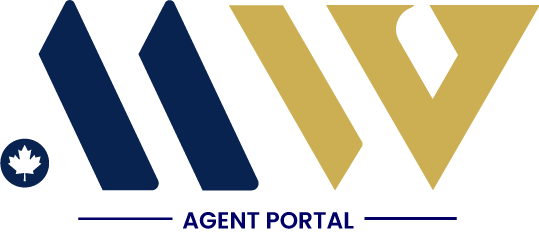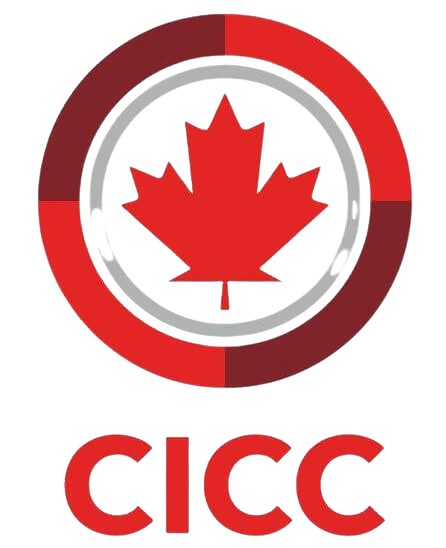What does inadmissible to Canada mean?
If you are deemed inadmissible to Canada it means that you are not able to enter or stay in Canada. There are various reasons for this including criminal behaviour, being considered unfit medically, not having enough finances to support yourself during your stay in Canada, and these are just a few.
But what exactly is a temporary resident permit and how can it help you get to Canada even though you may have previously been considered ineligible to come to Canada? Let’s take a look.
What is a Temporary Resident Permit?
 A temporary resident permit allows foreigners who are deemed inadmissible to Canada, to enter the country. As mentioned earlier, there are various reasons that you could be denied entry to Canada. As mentioned previously, one of these reasons is that you are seen as inadmissible to Canada.
A temporary resident permit allows foreigners who are deemed inadmissible to Canada, to enter the country. As mentioned earlier, there are various reasons that you could be denied entry to Canada. As mentioned previously, one of these reasons is that you are seen as inadmissible to Canada.
In order to enter Canada as a temporary resident, a border service officer will decide whether or not the benefits outweigh the risks linked to the person entering the country.
Temporary residents can’t leave Canada and re-enter unless they have permission to do so. Family members traveling with temporary residents may also be seen as inadmissible to Canada and will therefore also have to apply for their own individual permits.
What are the grounds of inadmissibility?
- security (espionage, subversion, violence or terrorism, membership in organization involved in any of the previous reasons);
- financial;
- human or international rights violations (war crimes, crimes against humanity, being a senior official in a government involved in human rights violations);
- failure to comply with any provision of IRPA (eg. overstaying, working or studying without a permit, previously deported, and trying to re-enter without authorization);
- medical reasons (endanger public health, safety or cause excessive demand on health or social services);
- committing a crime, including driving under the influence of drugs/alcohol (inside or outside Canada);
- misrepresentation including providing false information or withholding information related to decisions made under the Immigration and Refugee Protection Act (IRPA); or
- having an inadmissible family member.
What is considered criminal inadmissibility?
Everyone has a past and as a free and liberal country that is accepting of all people, the government believes in rehabilitation and that people should not be held to previous acts of crime if their time has been served. Both serious and minor crimes could cause issues when trying to enter Canada. This, however, only applies if the crime committed in their home country has a Canadian equivalent by law. Otherwise, criminal admissibility does not apply.
Types of Crimes
- impaired or reckless driving or driving under the influence or excessive speed
- drug-related crime
- theft and assault
This does not, however, mean that anyone who has a criminal past will be allowed to enter Canada. It can be difficult to immigrate or travel to Canada if you have a criminal history, but the good thing is that there are options.
Ways to enter Canada
As mentioned earlier, Canada believes in rehabilitation. After five or more years, once the sentence has been completed, you can apply for criminal rehabilitation. Ten years after the sentence has been completed, a person will be regarded as rehabilitated and will be able to enter Canada.
What is considered medical inadmissibility?
Whether you intend to apply to visit, study, work or live in Canada, you will need to be medically admissible to Canada. To prove this you will need to have an immigration medical exam done. If you are considered medically inadmissible to Canada for medical reasons, it could be for one of three main reasons:
- You are a danger to public health
- You are a danger to public safety
- You are an excessive demand on health or social services
1. Danger to Public Health
To decide if you are a danger to Canada’s public health, the IRCC will consider:
- your immigration medical exam results;
- whether you have certain infectious diseases such as pulmonary tuberculosis, untreated syphilis or have been in close contact with those who have infectious diseases;
- how your disease could affect other people living in Canada
2. Danger to Public Safety
To decide if you are a danger to Canada’s public safety, the IRCC will consider:
- sudden incapacity (loss of physical and mental abilities);
- unpredictable or violent behaviour;
- substance abuse that may be dangerous to Canadian citizens.
3. Excessive Demand on Health or Social Services
To decide if your health condition will be a strain on Canada’s medical system or social services, the IRCC will determine if:
- the health or social services needed to treat your health condition would negatively affect wait times for services in Canada; or
- the services needed to treat and manage your health condition would likely cost more than the excessive demand cost threshold
What is the Excessive Demand Threshold?
As of 2021, the cost threshold (under temporary public policy) is three times the average cost for health and social services, which is:
- $108,990 over 5 years (or $21,798 per year)
Exceptions include:
- refugees and their dependents; or
- protected persons;
- certain people being sponsored by their family eg. dependent children, spouses, and common-law partners.
If you are deemed medically inadmissible to Canada you will receive a procedural fairness letter, explaining the reasons why, before the final decision is made. You will have 60 days to appeal the decision and 90 days to submit any additional information requested.
Ways to enter Canada
If deemed medically inadmissible, you may be able to enter Canada with a temporary resident permit. for example, if you have valid humanitarian and compassionate reasons to come to Canada. As mentioned previously, you could also appeal the procedural fairness letter. For example, you could provide information and evidence about:
- your health condition or the medical diagnosis eg, if you got treatment to cure or improve your health condition; or
- the kind of medication and services that you need eg. if your doctor has changed your medication;
- the cost of medications or services that you need eg. if your doctor has changed your medication to a cheaper equivalent.
Frequently Asked Questions: Temporary Resident Permit (TRP)

What is the difference between a Temporary Resident Visa (TRV) and a Temporary Resident Permit (TRP)?
A Temporary Resident Visa (TRV), also known as a visitor’s visa, is a document issued by the visa office that confirms that you have met all the requirements to enter Canada as a temporary resident.
A Temporary Resident Permit (TRP) is a document that allows technically inadmissible foreigners who have been deemed eligible to enter Canada.
How long does it take to get a Temporary Resident Permit for Canada?
On average, a Temporary Resident Permit (TRP) can take anywhere from one to six months to process.
How much does a Temporary Resident Permit for Canada cost?
The processing fee for a Temporary Resident Visa (TRP) is $200.
Can you work on a Temporary Resident Permit in Canada?
As a temporary resident in Canada, you will need an additional permit to work in Canada. There are two main permits: an open work permit and an employer-specific. An open work permit will let you work for any employer in any location in Canada. An employer-specific work permit is for foreign workers who have a job offer with a specific Canadian employer which will require you to work at a specific place of business for a set-out period of time.
What are the processes for determining inadmissibility in Canada?
To determine whether or not you are inadmissible to Canada you will have to undergo a number of processes. These include:
- A physical examination
- A mental examination
- A review of past medical history
- Laboratory tests;
- Diagnostic tests and;
- A medical assessment records concerning the applicants.
How does a Legal Opinion Letter help?
Sometimes having a signed and verified letter from a Canadian lawyer or immigration professional can help you gain admissibility to Canada. It is however important to note that this could have an additional cost of anywhere between $2,000 and $5,000 depending on your case and your chosen legal practitioner.
Taking the Next Step
 Finding out that you are inadmissible to Canada can be devastating, but it isn’t necessarily the end of your Canadian journey. There are many reasons you may not be able to enter Canada including, medical, criminal, and financial reasons, to name a few. But Canada believes in second chances and even though you may have a record, you may still be deemed admissible to Canada should you meet certain requirements. Need help finding out whether you’re admissible to Canada or applying for a temporary resident permit for Canada? The Regulated Canadian Immigration Consultants (RCICs) we work side by side with, have not only been through the immigration process themselves but are well-versed in all Canadian immigration legislation and policies. But don’t take our word for it. They are all ICCRC-accredited and are ready to help you find your pathway to permanent residence in Canada.
Finding out that you are inadmissible to Canada can be devastating, but it isn’t necessarily the end of your Canadian journey. There are many reasons you may not be able to enter Canada including, medical, criminal, and financial reasons, to name a few. But Canada believes in second chances and even though you may have a record, you may still be deemed admissible to Canada should you meet certain requirements. Need help finding out whether you’re admissible to Canada or applying for a temporary resident permit for Canada? The Regulated Canadian Immigration Consultants (RCICs) we work side by side with, have not only been through the immigration process themselves but are well-versed in all Canadian immigration legislation and policies. But don’t take our word for it. They are all ICCRC-accredited and are ready to help you find your pathway to permanent residence in Canada.





